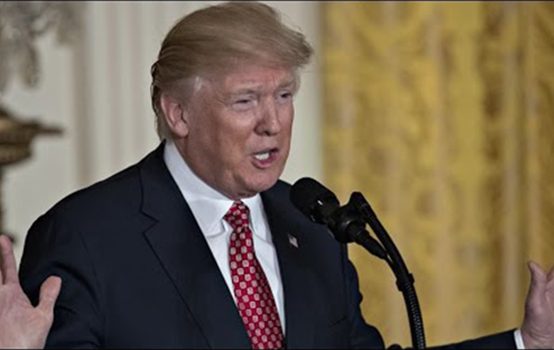Trump and the Thucydides Trap

Speaking of Zen takes, check out my latest column at The Week, which is about how Trump’s sloth and incompetence could wind up saving us from war with China:
Students of international affairs who take the long view have for some time been worried about the trajectory of U.S.-China relations. While in theory a cooperative relationship would be most beneficial to both parties, in practice dominant powers and rising challengers rarely are able to work out a fruitful accommodation. Instead, most often the two stumble into a conflict that devastates both countries’ interests.
Graham Allison calls the underlying theory — detailed in his new book — the Thucydides Trap. So long as both powers rationally assume that the dominant power aims to maintain its supremacy, even accommodative policies will be interpreted as a way to get the rising power to settle for less than it might achieve by revisionist agitations. So if the dominant power is accommodative, the rising power will take advantage, provoking a reversal by the dominant power and a confrontation. But if the dominant power is confrontational and tries to encircle the rising power, it will provoke the rising power to break out — and in the meantime the dominant power will exhaust its resources more quickly than the rising power does, accelerating the power transition.
So how can war be avoided?
Allison’s prescription is for robust communication along with a willingness on the part of the dominant power to think big in terms of how the international order will have to change to accommodate the rising power. Rather than try to prevent or limit the power transition, the dominant power has to facilitate it, get the rising power to understand that this is in fact the policy, and thereby forge a cooperative path through the transition that gives both powers an appropriate role to their new relative power position. I’ve argued in this space before that Korea would be a perfect place to try to achieve those twin goals.
The Obama administration’s much-touted but never-completed “pivot” to Asia could be understood as an effort to preserve America’s position within the context of partnership with China — or as an effort to contain China and maintain American supremacy. Strengthened alliances with countries like Australia and Vietnam were intended to discourage China from adventurism in its near-abroad, while the Trans-Pacific Partnership was designed to counter Chinese economic leadership in the region. On the other hand, the TPP did not explicitly exclude China, and it is plausible to think that its ultimate purpose was more to keep America in than to keep China out. Obama clearly saw a value in working with the Chinese rather than merely against them, but he also recognized that China intended to challenge America’s interests in the western Pacific and aimed to counter it.
We’ll never know whether the Obama strategy would have been a way out of the Thucydides Trap, or whether it would have led us right into it. We’ll never know because President Trump has trashed the strategy entirely, pulling out of the TPP, musing about abandoning the one-China policy, threatening unilateral action in Korea, and calling for tariffs on Chinese manufacturers. His initial policy mix looked like it was premised on the assumption that war was inevitable, so we might as well make it happen on our terms.
But a funny thing happened on the way to the battlefield: The Chinese realized we were bluffing.
Our military options in Korea aren’t really viable, and Trump has proved that he knows they aren’t by his eagerness to get the Chinese to handle the problem — eagerness so overwhelming it has already led him to abandon a core campaign theme, confronting the Chinese on trade. Trump has already reaffirmed the one-China policy. And he has not only gratuitously insulted keyallies, but demonstrated tactical incompetence in his communications about the mission of the aircraft carrier Carl Vinson. Watching Trump, America’s Asian allies surely are questioning our reliability and basic competence, while the Chinese surely are far less worried that America will be able to restrain their rise even if we desire to do so.
Normally, this would provoke the rising power to be more confrontational. But if the Chinese really understand Trump, they’ll see that they could get far more by picking his pocket than by mugging him. Trump is transparently eager for a deal — almost any deal. The Chinese could probably ask for the moon and the stars — or control of the South China Sea — in exchange for minor promises — to let their currency rise a bit (which has already happened), to build a few manufacturing plants in Ohio, to get North Korea to restrain itself for a few months. Why wouldn’t the Chinese try to get what they want at the table rather than taking the risk of a confrontation?
Of course, normally a political leader would pay a gruesome price for cutting a terrible deal with a key rival. If Barack Obama or Hillary Clinton had rolled over for the Chinese, the Republican Party would go ballistic. But Donald Trump’s brand is all about making America great again. His most vocal liberal critics, meanwhile, are more concerned that he’s going to stumble into World War III than that he is going to be insufficiently firm in defending America’s interests. While, as with Syria, they may support any military actions he does take, they are unlikely to provoke him into backing up his blustery threats with actual shows of force.
Paradoxically, Trump could achieve by sloth and incompetence what is very difficult for dominant powers to accept: a transition out of that dominant position.
Read the whole thing there.
Comments